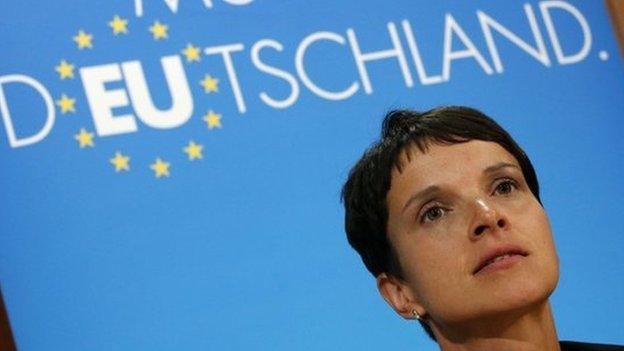What next for Germany's Eurosceptic AfD party?
- Published
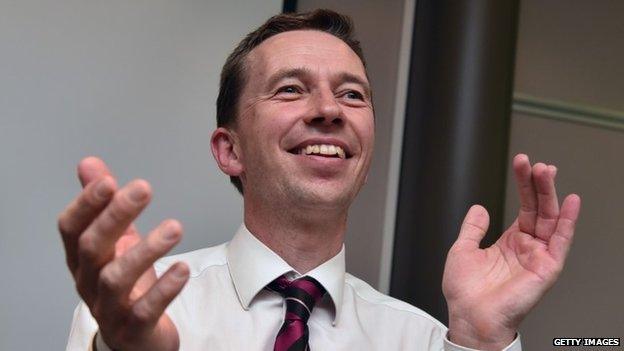
Bernd Lucke co-founded AfD but has since left and set up a new party
I first met Bernd Lucke last September. He was triumphant: his Alternative for Germany (AfD) party had just taken 12% of the vote in the Brandenburg regional election.
AfD, which had also recently won seats in the European Parliament, was creating something of a political stir.
Mr Lucke - a smooth-talking former academic - was one of the co-founders of AfD, in 2013. At first, it was derided as the "professors' party" and dismissed by Chancellor Angela Merkel as a small fringe group.
But, when I interviewed Mr Lucke, the populist party was already taking votes from Mrs Merkel's conservatives, attracting support from a disenchanted electorate and inviting comparisons with UKIP in Britain or France's far-right National Front.
They were comparisons Mr Lucke was keen to dismiss. For him, AfD was all about a single issue: he wanted out of the euro. His words then seem prescient now.
"Because of the euro, people in southern Europe don't hesitate to express their disgust towards Germany, using old Nazi comparisons. The euro was a failure and it would be bad if we continue to believe in this fairytale. If the euro fails, Europe doesn't fail."
Right wing 'taking over'
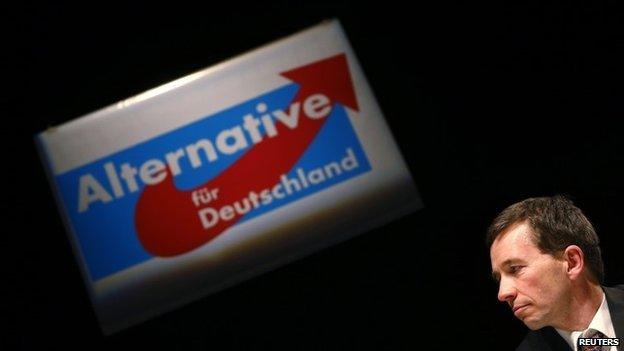
Mr Lucke was seen as a moderate in the party
But, as one political scientist noted, Mr Lucke's crusade wasn't what was pulling in the punters.
Albrecht von Lucke (no relation) says what attracted the voters were the right-wing politics of others in the party. Those who espoused, for example, traditional family values and tighter immigration controls.
"He admitted a right-wing populist element into his party. That movement has gotten stronger and emancipated itself from its leader to a point where they can take over the party."
Because, less than a year after our interview, Bernd Lucke is no longer part of AfD. Forced from its leadership by internal wranglings, external which have threatened to destroy it altogether. According to one poll, support for AfD fell to 3% last month.
Publicly, at least, the cracks started to appear at the same time as the grassroots "anti-Islamisation" movement Pegida rose to prominence.
In January the AfD leader for Saxony, Frauke Petry, held talks with Pegida in a bid to establish common ground. Ms Petry is now the leader of AfD after a power struggle that resulted in Mr Lucke leaving a party which, he argued, had become increasingly xenophobic.
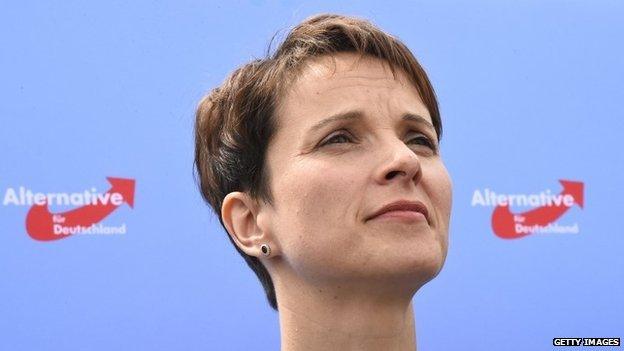
Former chemist Frauke Petry now leads AfD
Protest party
What next for AfD?
For Albrecht von Lucke it all depends on whether the party "can succeed at remaining mainstream, remaining centre-right rather than being a right-wing party which in Germany - because of its history - doesn't stand a chance.
"The question is whether they can establish themselves as a protest party living off resentment against established parties because there's clearly space for a party like that. We have a strong movement in society which is very hostile to the mainstream parliamentary system and AfD could be the masterpiece of that movement."
Patricia Hogwood of Westminster University believes they have a better chance of success now Bernd Lucke has left.
"This is now a party for the squeezed middle classes," she says, pointing out that "particularly at local and regional level, the AfD helped German voters overcome a deeply entrenched taboo against voting for a right-leaning party. Even as the AfD moves more securely into nationalist-conservative territory, this breaching of the taboo may help people vote for the party again."

AfD
Founded in 2013 by Bernd Lucke, Alexander Gauland and Konrad Adam to oppose German-backed bailouts for poorer Southern European countries
Mr Lucke, seen as a moderate, wanted Germany out of the euro but his colleagues were unhappy that he wanted to focus exclusively on euro-related issues
He quit the party in early July 2015, arguing it was becoming increasingly xenophobic
Right-winger Frauke Petry replaced him as party leader
It became the first anti-euro party to win seats in a German regional parliament, receiving almost 10% of the vote in the eastern German state of Saxony in 2014, and has gone on to win seats in other states
The party had seven MEPs elected in the 2014 European elections (including Mr Lucke)
AfD is currently part of the European Conservatives and Reformists Group, of which the UK's ruling Conservatives are also a member

Meanwhile Bernd Lucke, who is still an MEP, is having another go. He's just established another party: the Alliance for Progress and Renewal, or Alfa. He has tweeted that 5,000 people have shown an interest in the new party.
But it's run into trouble already. Alfa Romeo in Germany is considering legal action over the party's name.
Its chances of success? It's thought Mr Lucke intends to address the issue of immigration but he refuses to align himself with the anti-immigrant sentiment displayed by many Pegida supporters.
Some commentators observe that may not be enough to tempt voters away from AfD.
On the other hand, his stance against xenophobia may reassure those concerned by the right-wing reputation of AfD and, in light of the Greek crisis, his arguments about European fiscal policy may yet prove powerfully seductive.
- Published20 July 2015
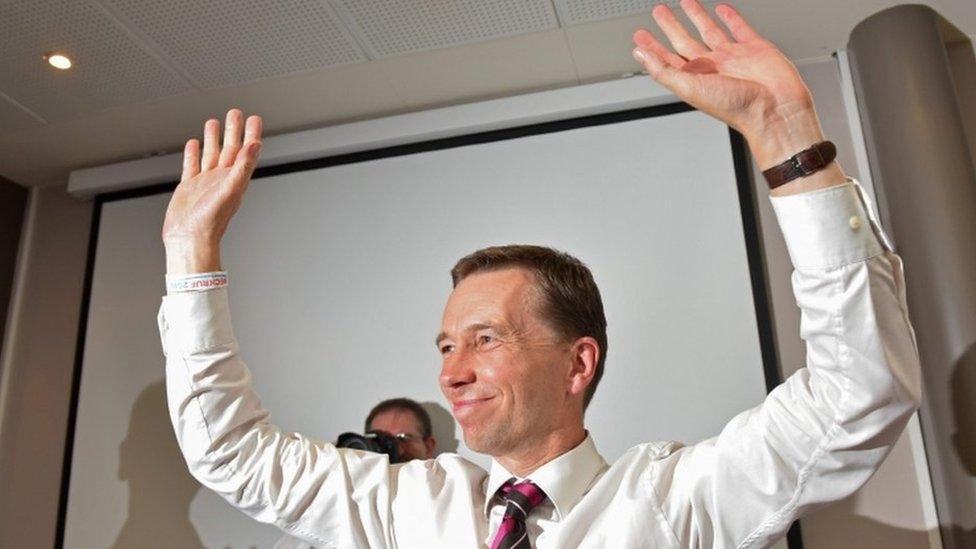
- Published15 September 2014
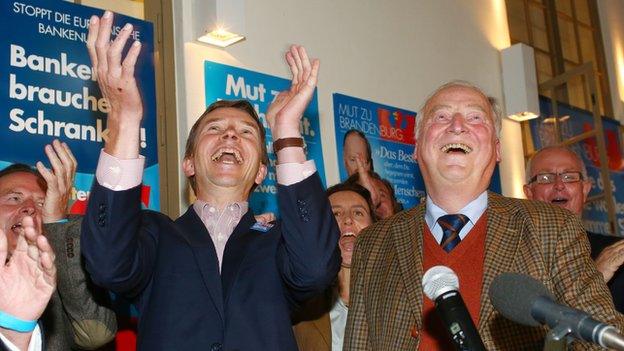
- Published2 September 2014
